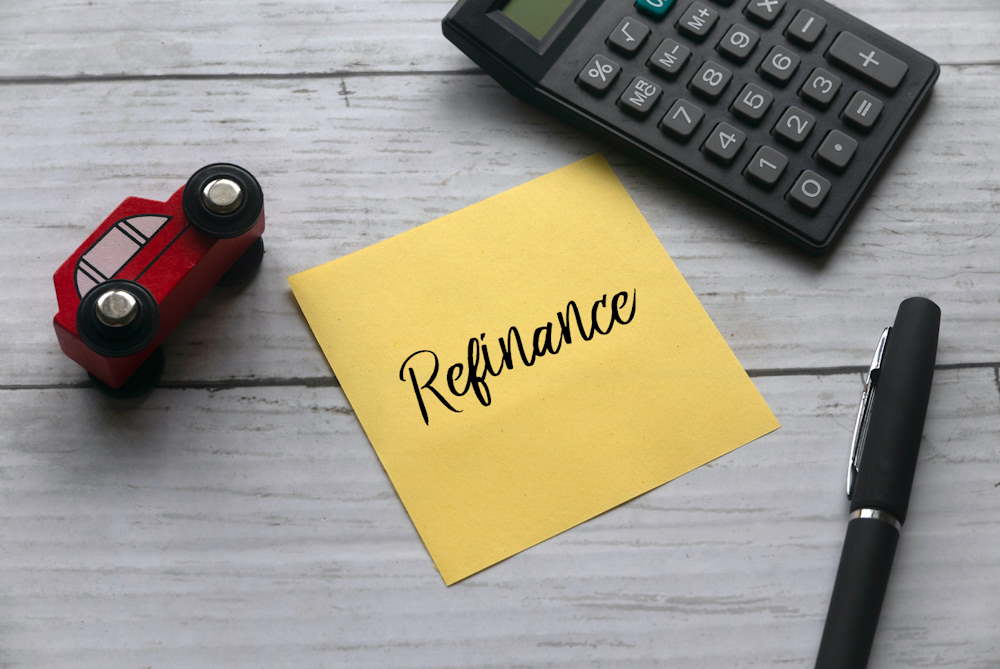When you refinance your car loan, you essentially restart your car loan with new terms and a new car loan APR. And this can translate to a lot of money in savings. But just how much can auto refinancing save you, and how do you decide the time is right?

The biggest way that you can save money is by refinancing your car loan to a lower car loan APR. You may qualify for a lower car loan APR if any of the following apply to you:
The market rates have decreased since you initially financed your car.
Your credit score has improved since you initially financed your car.
Your debt to income ratio has improved since you initially financed your car.
You are adding a cosigner to your car loan who has a good credit score.
Your credit score is the biggest factor that lenders consider when they are determining what car loan APR to offer you. Credit scores are designed to tell lenders how much of a credit risk you are. The higher your credit score is, the more likely you are to repay your loan (at least in the eye of the lender). So while you do not have control over the market rates, you do have control over your personal finances and your credit score. Your credit score is determined by looking at the following categories of your finances:
Payment history (35%)
Amounts owed (30%)
Length of credit history (15%)
Credit mix (10%)
New credit (10%)
Your payment history and accounts owed are the two most influential sections of your credit score. Therefore paying attention to these categories will help you increase your score the most. If you are interested in refinancing, it is a good idea to ensure your credit score is in top shape before applying for refinance. Commit to making full, consistent, on time payments to all of your lenders, pay off accounts with a high credit utilization ratio, request higher limits on your accounts, avoid opening new lines of credit, and review your credit report for any errors. All of these steps can help improve your score, which will lead to a better car loan APR when refinancing a car.
But just how much money can you save with an auto refinance? Let’s look at an example. You initially financed $25,000 with an 8% car loan APR to be repaid over 5 years. Your monthly payments are $506.91. Over the course of five years you will pay $5,414.59 in interest alone.
But let’s say you improve your credit score and you are able to refinance your car loan to 5%. Now your monthly payments are $471.78 and you will pay a total of $3,306.85 over the life of your loan. That’s over $2,000 in savings. And who couldn’t use that kind of extra cash?
When you refinance your car loan, you can change the repayment period. You can either lengthen the repayment period or shorten it, depending on your financial needs. If you want to save money in the long run, shortening your repayment period will mean that you will pay less in total interest over the life of the loan, but your monthly payments will ultimately be higher.
Let’s look at the same example from above. You initially financed $25,000 with an 8% car loan APR to be repaid over 5 years. Your monthly payments are $506.91. Over the course of five years you will pay $5,414.59 in interest alone. But if you were to refinance to a loan period of 4 years instead of five years, your monthly payments would rise to $610.32. With one less year of interest payments, you would only pay $4,295.51 in interest. That’s a savings of over $1100, even if you don’t qualify for a lower car loan APR. If you qualify for a lower car loan APR on top of that, the savings add up even more.
If you are having trouble making your car payments every month, lengthening your repayment period can significantly reduce your monthly payments and give you a lot more breathing room every month. Let’s consider the above example in reverse. If you initially had a $20,000 loan with 8% APR over 48 months and refinanced to 60 months, your monthly payments would reduce by over $100. While you would end up paying more in the long run, you would give yourself a lot of breathing room every month. By making your payments more manageable, you would give yourself more money to pay other bills and pay down other debts, which can ultimately improve your credit score.

Refinancing your car loan is easy and doesn’t require too much. The first step is to see if you qualify for a car loan refinancing. Requirements will vary from lender to lender, and eligibility typically depends on:
How old your car is
How many miles your car has on it
How much money is left on your loan
There may be other factors at play, but generally the older your car is and the less it is worth, the harder it will be to refinance your car loan. If your car is ten years or older or has over 100,000 miles you may not be able to refinance. Also if you do not have a lot of time left on your loan, lenders might not feel it is worthwhile for them to refinance your loan. Auto Approve can help you determine whether or not you are eligible for refinancing.
If you are eligible, you want to shop around with different lenders and compare before applying. You won’t have specific terms and rates to compare, but you can look at customer satisfaction ratings and reviews to get a sense of what each company is like. You can refinance a car loan with a traditional bank, a credit union, or an online lender. You will want to apply to 3-5 lenders so that you can compare and get the best terms. (Be sure to apply to all of them in a fourteen day window so that they all count as one hit on your credit report.)
The following documents are typically required when you refinance a vehicle.
A Photo ID, such as a passport or driver’s license.
Your vehicle’s information, which may include the bill of sale, VIN number, make, model, and year of your car.
Proof of income and financial history, which may include pay stubs, banking information, and your credit report.
Proof of residence, such as a mortgage statement, lease agreement, or utility bill. Note that PO boxes are not acceptable as proof of residence.
Proof of insurance.
While you can apply for car loan refinancing on your own, it’s much easier to use a company that specializes in car loan refinance. They will have preexisting relationships with lenders that can result in the best deals. And since they specialize in refinance, they are more than ready to help answer any questions or issues you may have.

So how do you know if the time is right to refinance your car loan? While you can refinance your car loan at any time, it is more beneficial to do so at certain times. The time is right to refinance if:
Your credit score has increased
Market rates have decreased
Your debt to income ratio has improved
You have had your existing loan for at least six months
You have more than two years left on your existing loan
You want to add or remove a cosigner
If some (or all) of these conditions apply to you, the time might be right to refinance. You can refinance before six months, but waiting six months to a year will give your credit score a chance to rebound from your last financing inquiry. It will also give you a chance to establish a good payment history, both of which will help you secure a better car loan APR. New lenders will appreciate seeing your on time payments to your existing car loan.
The time might not be right to refinance a car if:
Your credit score has decreased
Market rates have increased significantly
Your debt to income ratio has gotten worse
Your loan is brand new
Your loan period is almost over.
If you are wondering if the time is right, contact Auto Approve to speak with one of our agents.
So if you are asking yourself “why do people refinance auto loans?” the answer is simple–it can save people a lot of money. Contact Auto Approve today to see just how much money you can save!